External links
| | This article about an organisation in the Netherlands is a stub. You can help Wikipedia by expanding it. |
| | This article about politics in the Netherlands is a stub. You can help Wikipedia by expanding it. |
The Association of Provinces of the Netherlands (Dutch : Interprovinciaal Overleg; IPO) is the association of the twelve provinces of the Netherlands. The association looks after provincial interests and forms a platform for exchanging knowledge and experience among the twelve Dutch provinces. The IPO also stimulates and takes the initiative in reform programmes.
The executive of the IPO consists of thirteen members, made up of one from each province (who can be a member of that province's Gedeputeerde Staten , or its King's Commissioner) plus a chairperson. The chair is vacant. The IPO's general assembly is made up of twenty-four members of the States-Provincial (2 from each province).
The office of the IPO presents provincial interests through relations with the central government, the European Union, the Association of Netherlands Municipalities, the Unie van Waterschappen, the National Civil Pension Fund and with social organizations.
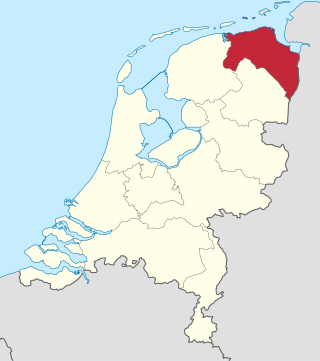
Groningen is the northeasternmost province of the Netherlands. It borders on Friesland to the west, Drenthe to the south, the German state of Lower Saxony to the east, and the Wadden Sea to the north. As of January 2023, Groningen had a population of about 596,000, and a total area of 2,955 km2 (1,141 sq mi).
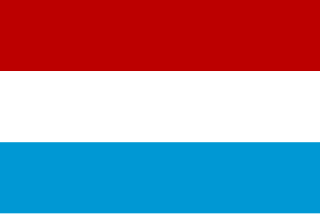
The United Provinces of the Netherlands, officially the Republic of the Seven United Netherlands and commonly referred to in historiography as the Dutch Republic, was a confederation that existed from 1579 until the Batavian Revolution in 1795. It was a predecessor state of the present-day Netherlands and the first independent Dutch nation state. The republic was established after seven Dutch provinces in the Spanish Netherlands revolted against Spanish rule, forming a mutual alliance against Spain in 1579 and declaring their independence in 1581. The seven provinces it comprised were Groningen, Frisia, Overijssel, Guelders, Utrecht, Holland, and Zeeland.
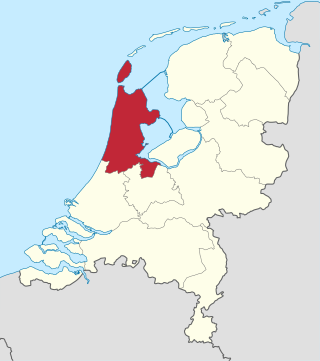
North Holland is a province of the Netherlands in the northwestern part of the country. It is located on the North Sea, north of South Holland and Utrecht, and west of Friesland and Flevoland. As of January 2023, it had a population of about 2,952,000 and a total area of 4,092 km2 (1,580 sq mi), of which 1,429 km2 (552 sq mi) is water.

There are twelve provinces of the Netherlands representing the administrative layer between the national government and the local governments, with responsibility for matters of subnational or regional importance.
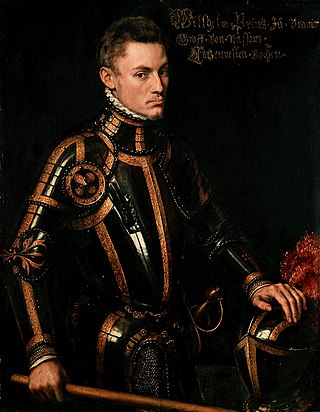
In the Low Countries, a stadtholder was a steward, first appointed as a medieval official and ultimately functioning as a national leader. The stadtholder was the replacement of the duke or count of a province during the Burgundian and Habsburg period.

The Kingdom of Belgium is divided into three regions. Two of these regions, Flanders and Wallonia, are each subdivided into five provinces. The third region, Brussels, does not belong to any province, nor is it subdivided into provinces. Instead, it has amalgamated both regional and provincial functions into a single "Capital Region" administration.

The States General of the Netherlands is the supreme bicameral legislature of the Netherlands consisting of the Senate and the House of Representatives. Both chambers meet at the Binnenhof in The Hague.

The Senate is the upper house of the States General, the legislature of the Netherlands. Its 75 members are elected on lists by the members of the twelve States-Provincial and four electoral colleges for the Senate every four years, within three months of the provincial elections. All provinces and colleges have different electoral weight depending on their population.

A King's commissioner is the head of government and legislature in a province of the Netherlands. When the reigning monarch is a woman, the title is Queen's commissioner.
This list contains all twelve official flags of the provinces of the Netherlands, including the pennons.

The Historic composition of the House of Representatives of the Netherlands gives an overview of the composition of the House of Representatives of the Dutch parliament. It shows the composition after elections, splits from parties are not included.
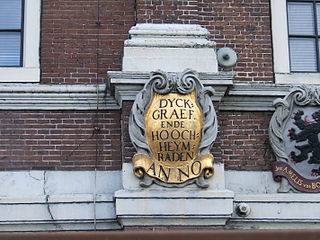
In the Netherlands, a water board, water council or water authority is a regional governing body solely charged with the management of surface water in the environment. Water boards are independent of administrative governing bodies like provinces and municipalities. In general, they are responsible for managing rivers and canals, issues with the flow of watercourses and drainage issues, water collection, flood and erosion prevention and provision of potable water. They manage polder systems, water levels, water barriers and locks, enforcements, water quality and sewage treatment in their respective regions. The concept of a coordinating "High Water Authority" (Hoogheemraadschap) originated in what now is the province of South Holland in the 12th century.

The provincial council, also known as the States-Provincial, is the provincial parliament and legislative assembly in each of the provinces of the Netherlands. It is elected for each province simultaneously once every four years and has the responsibility for matters of sub-national or regional importance. The number of seats in a provincial council is proportional to its population.

Jan Franssen is a Dutch politician.

The politics of the Dutch provinces takes places within the framework of the politics of the Netherlands. The province is the second-highest level of government, after the national government. The Netherlands is divided into twelve provinces.
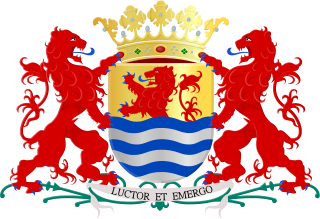
The Provincial Council of Zeeland, also known as the States of Zeeland, is the provincial council of Zeeland, Netherlands. It forms the legislative body of the province. Its 39 seats are distributed every four years in provincial elections.

Provincial elections were held in the Netherlands on Wednesday 2 March 2011. Eligible voters elected the members of the provincial councils in the twelve provinces. These elections also indirectly determined the members of the Senate, since the 566 members of the twelve provincial councils elected the Senate's 75 members in the Senate election on 23 May 2011.

The Dutch Republic existed from 1579 to 1795 and was a confederation of seven provinces, which had their own governments and were very independent, and a number of so-called Generality Lands. These latter were governed directly by the States-General, the federal government. The States-General were seated in The Hague and consisted of representatives of each of the seven provinces.
Local elections were held in the Philippines on May 13, 2013, the same day and on the same ballot as national elections. Elected were governors, mayors and council members of Philippine provinces, Philippine cities and Philippine municipalities. Separate elections for barangay officials were held on October.

Provincial elections were held in the Netherlands on 15 March 2023, on the same day as the water board elections, as well as island council elections in the Caribbean Netherlands.